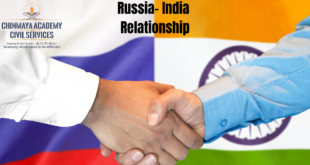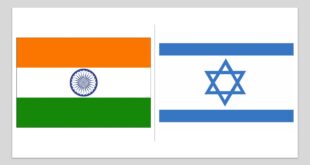- On February 23, 2023, on the eve of the first anniversary of Russia’s invasion of Ukraine, the United Nations General Assembly (UNGA) adopted a resolution, calling for an end to the war.
- The resolution was favoured by 141 members and opposed by seven, while 32 states abstained. Unsurprisingly, India was one among the 32.
- This is in line with the position India has been taking on the Ukraine crisis from the beginning. India has refused to condemn Russia for the invasion; it has refused to join the West’s sanctions; has stepped up buying Russian fuel at a discounted price, and has consistently abstained from UN votes on the war.
- India’s position has triggered sharp responses in the West. Before the war, there was much debate among the global strategic commentariat about India’s irreversible shift towards the West.
- However, after the war began, many wondered why the world’s largest democracy did not condemn Russia. For some others, India was “financing” Vladimir Putin’s war by buying Russian oil.
- Why did India take a different line from that of its partners in the West? To understand India’s position, one has to look at how India sees the war.
Democracies versus autocracies
- For the Atlanticists in general, the war by an authoritarian Russia on a “democratic” Ukraine is an affront to global democracy.
- According to this narrative, anything less than a complete Russian defeat would mean “the end of the international order”.
- So, to save global democracy, the rules-based order and international law, all democratic and law-adhering states should take a position against Russia and join the western coalition.
- Granted, an overwhelming majority of nations have supported UNGA resolutions calling for the war to be brought to an end.
- But beyond the UN votes, the U.S. has hardly managed to mobilise democracies outside its traditional western alliance system against Russia. India and South Africa, large democracies from Asia and Africa, have consistently abstained from votes at the UN and refused to join the sanctions — because the sanctions were unilateral, imposed by specific countries or blocs, without UN approval. Brazil, the largest democracy in South America, has not joined the sanctions;
- so have many smaller democracies (and non-democracies) across geographies. Even some countries that are part of the western alliance system, say Israel and Turkey, are reluctant to join Mr. Biden’s crusade.
- Most of these countries see the war as a European problem between two former Soviet countries with its roots going back to the end of the Cold War.
- For them, it is less about global democracy than the post-Cold War security architecture in Europe.
Morality versus national interests
- Even if this is not a war between democracies and autocracies, there is still the question about morality.
- There is no doubt here that Russia has violated the sovereignty of Ukraine. And Russia’s annexation of Ukrainian territories is a clear violation of international laws. So, how can countries such as India ignore this fact and move on.
- India has repeatedly stated in the UN that the sovereignty and territorial integrity of all countries should be respected.
- But a key dilemma before any country in international relations is that when it comes to specific actions in the event of a clash between moral positions and national interests, it is about which path they should take.
- For the U.S. and much of Europe, there is a convergence of their moral positions and foreign policy objectives in the case of the Ukraine war.
- The U.S. wants to “weaken” Russia, as U.S. Defence Secretary Lloyd Austin said, and Europe wants to make Russia’s invasion costly so that they believe Moscow would be deterred in the future.
- So, the moral line they take serves their strategic purpose. However, this position has hardly been consistent especially when there are clashes between values and interests.
- In 2003, the U.S. launched its illegal invasion of Iraq, violating the country’s sovereignty. In 2011, the North Atlantic Treaty Organization (NATO) turned a UN Security Council resolution to establish a no-fly zone in Libya into a full-scale invasion.
- Right now, the U.S. has illegally placed its troops in Syria. Or, take the case of Israel, which has illegally annexed East Jerusalem and Syria’s Golan Heights and keeps building illegal Jewish settlements in the occupied West Bank.
- The U.S. has recognised Israel’s annexation of Golan and moved its embassy to Jerusalem. While Russia is being pounded with sanctions, Israel is getting billions worth of military aid every year from the U.S.
SOURCE: THE HINDU, THE ECONOMIC TIMES, PIB
 Chinmaya IAS Academy – Current Affairs Chinmaya IAS Academy – Current Affairs
Chinmaya IAS Academy – Current Affairs Chinmaya IAS Academy – Current Affairs

